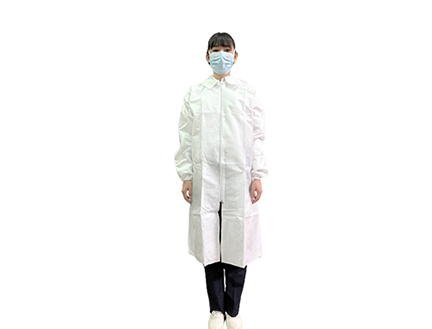Waterproof lab coats are essential in various industries and professions where individuals are exposed to liquids, chemicals, or other substances that could potentially damage regular lab coats. The use of waterproof lab coats is crucial to ensure the safety and protection of workers in these environments. Here are some industries and professions that typically require the use of waterproof lab coats:

1. Healthcare Industry: In healthcare settings such as hospitals, clinics, and laboratories, healthcare professionals often deal with bodily fluids, chemicals, and other hazardous materials. Waterproof lab coats are necessary to protect medical personnel from contamination and spills while maintaining a hygienic environment.
2. Research Laboratories: Research laboratories, including those in academic institutions, pharmaceutical companies, and biotechnology firms, frequently handle various chemicals, reagents, and biological samples. Waterproof lab coats are used to shield researchers from accidental spills or splashes that could pose health risks.
3. Veterinary Medicine: Veterinarians and veterinary technicians working with animals may encounter bodily fluids, cleaning agents, or medications that require protection beyond standard lab coats. Waterproof lab coats are employed to prevent absorption of liquids and maintain a clean workspace.
4. Food Industry: In food processing facilities, commercial kitchens, and restaurants, employees often work with oils, greases, cleaning agents, and other liquids that can soil regular clothing. Waterproof lab coats help food industry workers stay clean and adhere to hygiene standards.
5. Chemical Engineering: Professionals in chemical engineering or related fields work with corrosive substances, solvents, acids, and other hazardous materials that necessitate protective gear like waterproof lab coats to minimize exposure risks.
6. Cleanroom Environments: Industries such as semiconductor manufacturing, pharmaceutical production, and nanotechnology require workers to wear specialized protective clothing in cleanroom environments. Waterproof lab coats are utilized to maintain cleanliness standards and prevent contamination.
7. Environmental Testing: Environmental scientists conducting fieldwork or sample collection in water bodies or contaminated sites may need waterproof lab coats to shield themselves from potential exposure to pollutants or harmful substances.

FAQs:
1. What is a waterproof lab coat, and why is it necessary in certain industries?
A waterproof lab coat is a specialized garment designed to repel liquids and provide protection against spills and splashes. It's crucial in industries where workers are exposed to liquids or chemicals that could otherwise penetrate regular lab coats, risking contamination or injury.
2. Which industries commonly mandate the use of waterproof lab coats?
Industries such as pharmaceuticals, biotechnology, healthcare, food processing, chemical manufacturing, and research laboratories often require the use of waterproof lab coats to maintain safety standards and protect workers from hazardous substances.
3. How does a waterproof lab coat benefit professionals in the medical field?
In medical settings, waterproof lab coats are essential for protecting healthcare workers from blood, bodily fluids, and other contaminants. They help maintain hygiene standards, prevent cross-contamination, and ensure the safety of both patients and medical staff.
4. Why are waterproof lab coats important in food processing facilities?
Waterproof lab coats are crucial in food processing to prevent liquids, oils, and food substances from seeping through clothing, which could compromise food safety and hygiene standards. They help maintain a sterile environment and prevent cross-contamination.
5. What role do waterproof lab coats play in research laboratories?
In research laboratories, waterproof lab coats shield scientists and technicians from chemical spills, hazardous materials, and biological agents. They provide an additional layer of protection against accidental exposure and help minimize risks in experimental settings.
In conclusion, industries such as healthcare, research laboratories, veterinary medicine, the food industry, chemical engineering, cleanroom environments,**and environmental testing commonly require the use of waterproof lab coat to ensure worker safety and maintain a sterile working environment.






